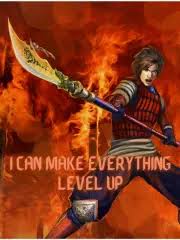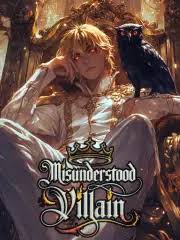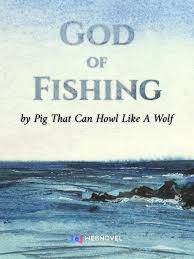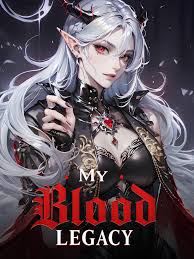The Story in 3 Sentences
A man named Bill dies on Earth only to awaken as an infant, Billy, in a perilous fantasy world where his impoverished tribe teeters on the brink of annihilation by monstrous threats and hostile neighbors.
Gifted with a unique system that converts his mana into experience points to level up himself or any object, Billy chooses a path of extreme caution, deliberately under-leveling his own power for years to avoid suspicion and protect his new family, forcing him to rely on cleverness and incremental growth.
His journey shifts from desperate tribal survival to continental exploration and nation-building, culminating in him becoming a ruler who must balance his hidden, god-like potential with the mundane realities of leadership and family.
Why It Stands Out
1. The Anti-Power Fantasy Power Fantasy
It presents a protagonist with a theoretically game-breaking ability but subverts the genre by making his greatest struggle an internal one: the conscious, often frustrating, decision not to use it to its full potential. The tension comes not from external enemies, but from the reader’s desire to see him unleash his power versus his own self-imposed limitations for the sake of blending in and protecting his loved ones.
2. World-Building Through a Crawl
The narrative forces the reader to experience the world’s harshness and wonder at the same glacial pace as the infant-turned-child protagonist. You don’t get an info-dump; you learn about magic, society, and danger through Billy’s limited, evolving perspective, making the primitive tribal setting feel viscerally real and the eventual expansion of the world map genuinely epic.
3. A System Novel That Forgets Its System
The novel’s core mechanic, the very thing its title promises, becomes a background tool rather than the central driver. The story stands out because it’s less about the system and more about the psychological and societal implications of having such power in a world utterly unprepared for it, focusing on character relationships and survival drama over stat screens and rapid power escalation.
Characters That Leave a Mark
There’s Alexander – the seasoned warrior who becomes Billy’s first real mentor and training partner, pushing him physically while remaining oblivious to the true extent of his pupil’s capabilities.
You’ll meet Natalie, who evolves from a fellow tribesperson into a fierce warrior and one of Billy’s closest companions, her bravery and loyalty providing a stark contrast to Billy’s calculated restraint.
And Lily? They’re the one who joins Billy’s inner circle later, adding a new dynamic to the group with their own ambitions and skills, often acting as a bridge between Billy’s cautious strategies and the more direct approaches of others.
The Flaws Fans Debate
The protagonist’s deliberate under-utilization of his system is the central, divisive flaw, with many readers finding his self-sabotage illogical and frustrating, turning what should be empowerment into a source of narrative stagnation.
The pacing suffers significantly after the initial, tightly-focused tribal survival arc, with the middle section of the novel meandering through side quests and lacking a clear, driving goal for hundreds of chapters.
Character development for the supporting cast often stalls, with teammates frequently reduced to complaining or second-guessing Billy without showing meaningful mental growth, making them feel like static burdens rather than evolving partners.
Must-Experience Arcs
Ch. 1–20: The Crib and the Claw – description. Experience the world through the eyes of a helpless infant as Billy discovers his system and the brutal reality of his tribe’s existence, culminating in his first, desperate attempts to contribute to its defense using nothing but his wits and minimal, carefully allocated experience points.
Ch. 397–440: The Scholar and the Steel Road – description. Witness Billy’s world expand dramatically as he reunites with Alexander and his students, embarking on a journey across the continent in his magically enhanced vehicle, facing new political landscapes and threats far beyond his village’s borders.
Ch. 790–794: The Epilogue of Everything – description. See the final, quiet culmination of Billy’s lifelong journey as he, now a ruler and patriarch, reflects on his choices, plays with his children, and observes his family train, a peaceful scene that underscores the immense, hidden power he wielded to achieve this fragile normalcy.
Killer Quotes
“Reincarnation, huh… keeping my memories is good and all, but I am not sure if it was the best thing. How can I live a life earnestly and do my part if I’m always holding back?”
“Maybe I am dreaming… but this is one heck of a scary dream. I can’t see or feel anything… no, I can feel… some warmth and something slimy over me…”
“Was I reborn in some kind of indigenous tribe?” Billy knew that nowadays, only very few tribes were isolated enough for them not to have ordinary clothes or comforts.
Cultural Impact
The novel sparked countless online debates and memes centered around the “Billy Problem,” with fans creating images of him sitting on a throne made of unused experience points while his village burns.
It developed a dedicated, if sometimes frustrated, niche following who appreciated its unique, slow-burn take on the isekai and system genres, often recommending it as a “diamond in the rough” despite its flaws.
Its massive chapter count and completion status made it a popular “background reading” choice for fans who enjoyed its world and characters but accepted its pacing issues as part of the long-haul experience.
Final Verdict
Start Here If You Want:
A deeply unconventional take on the isekai/system genre where the system is almost an afterthought.
A story that prioritizes slow, methodical world-building and character relationships over rapid power escalation.
A completed, epic-length saga that follows a protagonist from infancy to rulership, offering a full, albeit uneven, life story.
Study If You Love:
Analyzing narrative tension created by a protagonist’s self-imposed limitations rather than external conflict.
Exploring the sociological implications of introducing game-like mechanics into a low-tech, tribal society.
Deconstructing the tropes of the power fantasy genre by focusing on the psychological burden of hidden omnipotence.
Avoid If You Prefer:
Protagonists who actively and efficiently exploit their unique abilities to become overpowered.
Fast-paced plots with clear, escalating stakes and minimal filler content.
Strong, independent character arcs for the supporting cast that don’t revolve entirely around the main character’s decisions.





